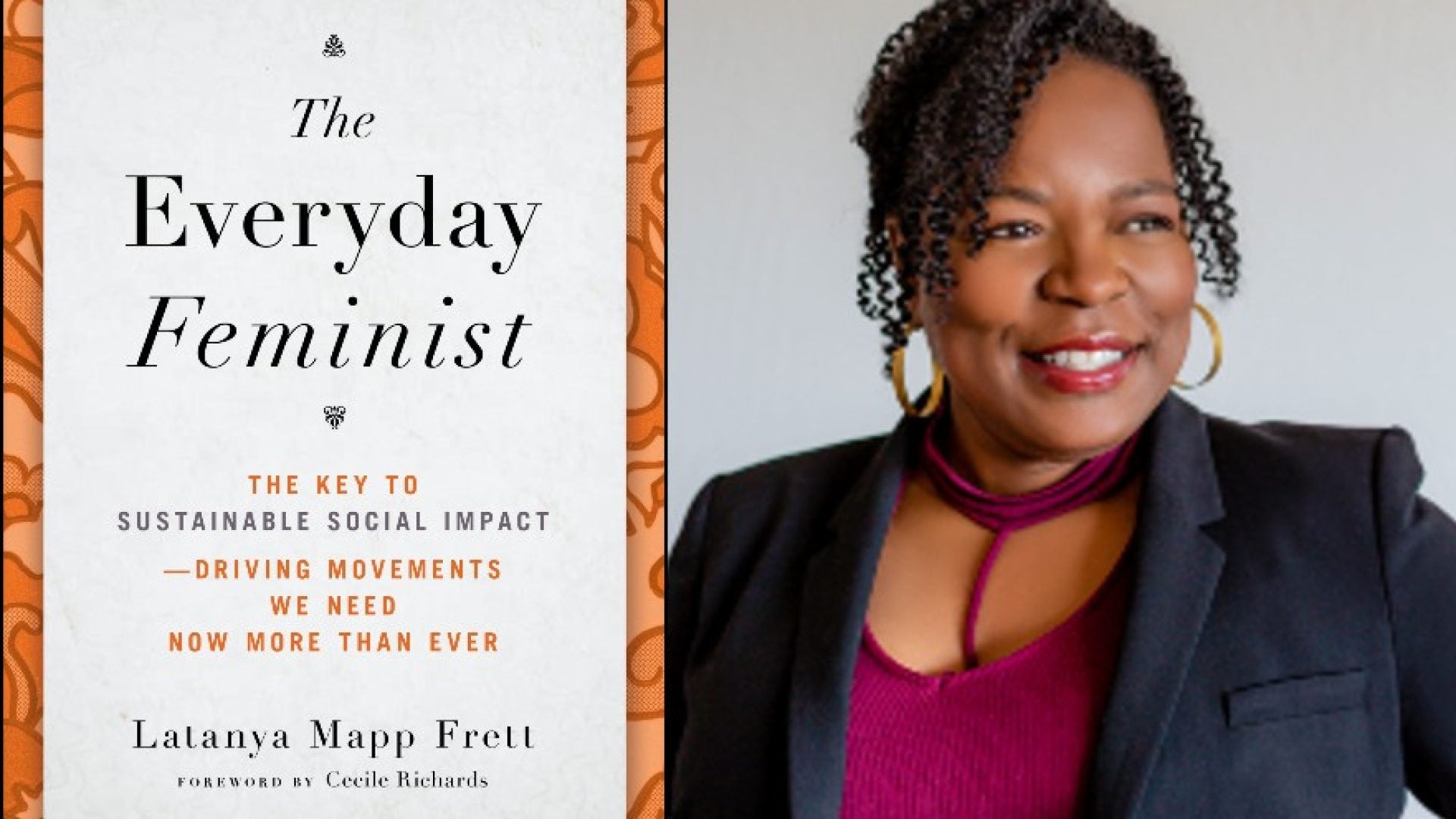
Latanya Mapp Frett is an attorney and the CEO and President of the Global Fund for Women, a feminist organization that “fund[s] gender justice movements and provide[s] crisis and innovation grants” to effect change.
Recently, we’ve been seeing a regression in critical issues pertaining to women, from the reversal of Roe v. Wade to “me too” movement backlash. Often, it’s been the grassroot feminist movement standing up and fighting back with protests and advocating for legislative change.
In her new book, THE EVERYDAY FEMINIST: The Key to Sustainable Social Impact—Driving Movements We Need Now More Than Ever, Frett offers up “a practical blueprint to social change…centering the everyday feminists that Latanya has met along the way in her work.”
In conjunction with the book’s release, Frett spoke with ESSENCE about her inspiration for writing this story, how young everyday feminists are driving change, and how we can support the movement.
This interview has been edited for length and clarity.
ESSENCE: What inspired you to write on this topic?
I’ve lived in about 15 different countries, and I just kept meeting women who were incredibly special, doing all of these amazing things in their communities. They took me under their wing, they taught me everything they knew and really set me on a path to my career and to where I ended up today. I started thinking about that when I came to the Global Fund for Women, and then seeing women trying to negotiate peace accords in their countries, standing down violence, whether it’s online, in person, or in their homes during COVID, I wanted to put that out there and talk about all of these incredible women.
The women out in the spotlight are great, but behind them are hundreds of women that are showing up every day, keeping their voices loud and heard, and I feel like they don’t get enough respect. And I know they don’t get enough resources to continue the work that they do. They shouldn’t have to beg to do the work that all of us benefit from, and that’s how I felt going into this project. I really wanted to sing their praises and demystify this concept that a feminist has to be some special kind of woman, so I did this book in solidarity and connection with the work that I do every day with Global Fund for Women.
ESSENCE: Can you elaborate more on why everyday feminists and their work are being overlooked?
It goes right back to this issue of that we’re just expected to take care of everything and to do that for nothing. We take care of not just children, but we take care of the elderly, we’re doing the PTA, we’re showing up, being resourceful and in front of all these different challenges that exist in our various communities. I think people just see that as part of what we’re supposed to do.
So, I don’t just look to women to say we have to change, I look to our whole society. We can’t just say that we appreciate the work that these women are do. We have to stop expecting them to do it for nothing.
ESSENCE: There are more and more stories in the news about young women that are driving change. Is this a new phenomenon, or are we just now hearing about this work?
Adolescent girls are my new heroes. I have a 17-year-old, and these girls are doing it right. They are already out there doing all these amazing things. I think we need to be doing a whole lot more with young girls because they’re not tainted yet, they don’t see it as a complete and utter waste of time to change the world, and they are so ready to fly, and I think about it like an investment with our portfolios—you can put money there and you have to put resources there. I talked about that a lot in the book because we do have wisdom to impart to the young, but they have so much as well to impart to us, and we’ve seen what they’ve been doing around the world.
If we kind of get out of the way and trust them, young feminists will do what they do, and I think we will see a whole lot more change happening and a whole lot more pushback on systemic stuff that we’ve been dealing with for a century or more, depending on what community you come from. I do think that this is a time when we should be breathing some of that innovation from them into our own work, and we should watch and support and cheer as they start moving towards a system that we can’t even imagine ourselves.







ESSENCE: Taking on a more personal lens, do you consider yourself an everyday feminist?
All everyday feminists are fighters and I feel like I fall under that. I’ve learned to get up in the morning and look in the mirror and see the everyday feminist, and I say that because it can hard to recognize it as you’re in the moment. But I certainly have been on this path, and I feel like this concept of an everyday feminist is a reflection of who I have become in the world, and fighting injustice is who I am and who I strive to be.






